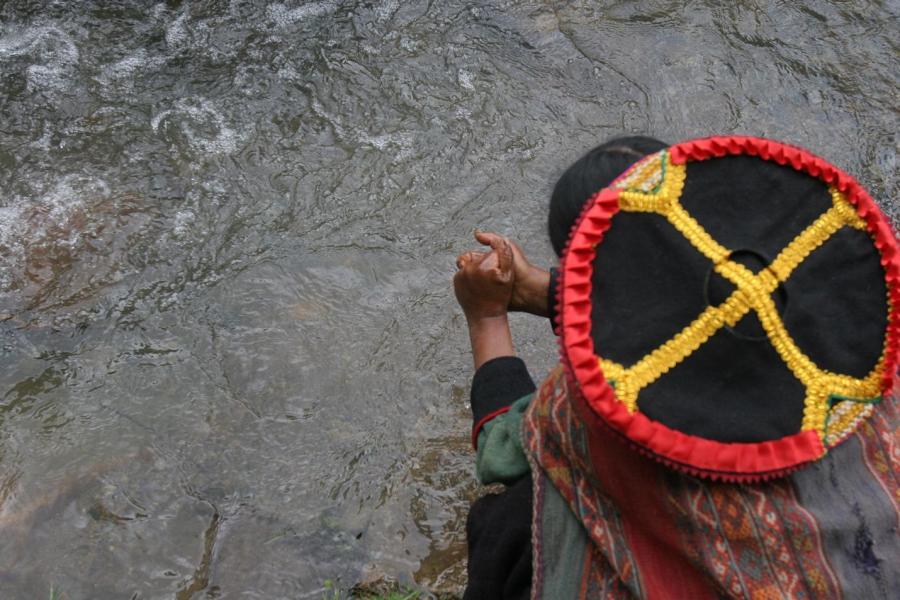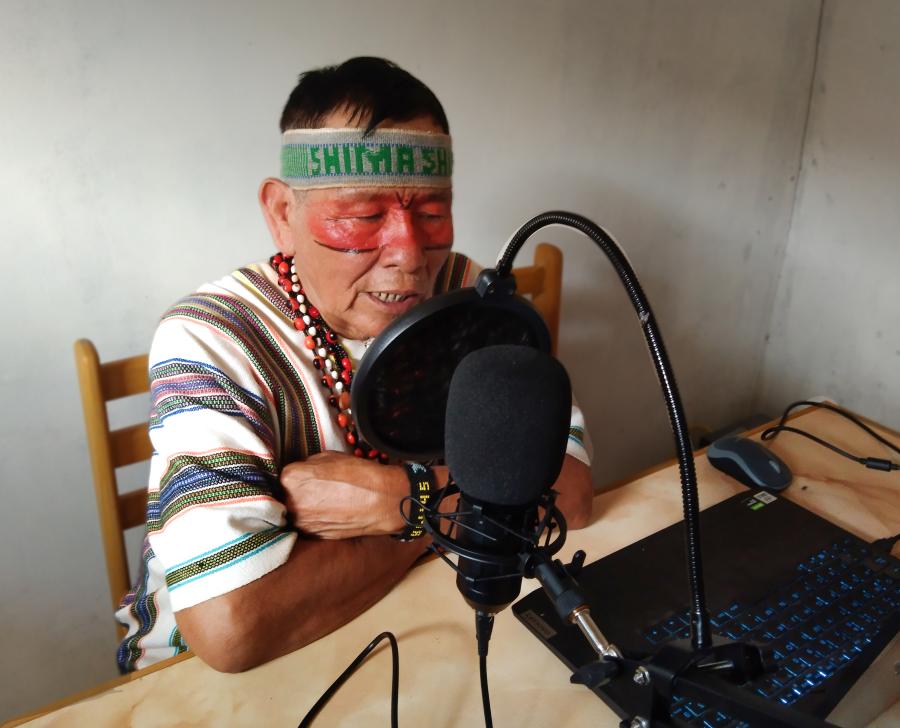Intense political repression and violence has continued in the wake of the June 5 protests in Peru, which resulted in the deaths of at least two dozen Indigenous people in Bagua Province of northern Peru. Violence continued in June, when government officials stormed the Petroperú oil facility in Bagua Province. Indigenous protesters had seized control of the pumping station, threatening to cut off oil and energy supplies to major Peruvian cities. Approximately nine police officers were killed during the clash.
The Peruvian government has applied intense political pressure to AIDESEP, curtailing civil liberties and detaining Indigenous activists across the country. On June 6, arrest warrants were issued against AIDESEP President Alberto Pizango Chota for “sedition, conspiracy, and rebellion.” Chota has been granted political asylum in Nicaragua. June 11 marked an official national day of protests, as Indigenous Peoples from across Peru took to the streets to voice their opposition to the June 5 killings in Bagua. Though these protests were generally peaceful, police fired tear gas into the crowd and detained numerous protesters in the capital city of Lima.
The Ministry of Transport and Communication ordered the shutdown of popular community radio station La Voz de Bagua on June 12. The station has been of considerable importance to Indigenous communities and activists during protests, helping to disseminate information, warn listeners about impending attacks, and reconnect separated peoples. It is the only radio station that has offered live coverage of the protests. The ministry claimed they were shutting down the station because it lacked the proper “documentation regarding licenses for some of the station’s equipment.”
Also on June 12, Congress suspended seven of its Indigenous members for three months. The suspended representatives were all members of the Partido Nacionalista, a leftist organization that supports the demands of AIDESEP.
AIDESEP and Peru’s Indigenous Peoples have been making significant progress, however, as the Peruvian government begins to reevaluate its strategy. Following the June 5 protests, Congress repealed two of the most controversial decrees and President Garcia agreed to meet with Indigenous leaders on June 20. Additionally, a Truth Commission has been established to investigate the killing of civilians during the June 5 protest in Bagua. Ombudsman Beatriz Merino has proposed a new bill that would require the recognition of ILO 169, which, she argues, is imperative to “secure a foundation to guarantee intercultural dialogue, incorporating Indigenous Peoples in the nation’s decision making process within the framework of our legal and democratic system.” Both Prime Minister Yehude Simon and Carmen Vildoso, Peru’s Minister of Women’s Affairs and Social Development, have resigned from office as a result of the government’s mishandling of the protests. On June 17, the National Association of Journalists convened in Bagua Grande to discuss the closures of community radio stations, including La Voz, and to formally denounce the Peruvian government for its actions.
Unfortunately, the situation continues to look bleak as Yehude Simon’s replacement, Javier Velásquez Quesquén, takes office. When he was president of the Congress, Quesquén supported police violence and repression of Indigenous protesters and refused to release the report of a bipartisan commission that found Garcia’s decrees to be unconstitutional. Peru has also granted concessions for the British-French oil company Perenco to begin exploration in Block 67 of the Amazon, an area that is home to several uncontacted Indigenous tribes.



